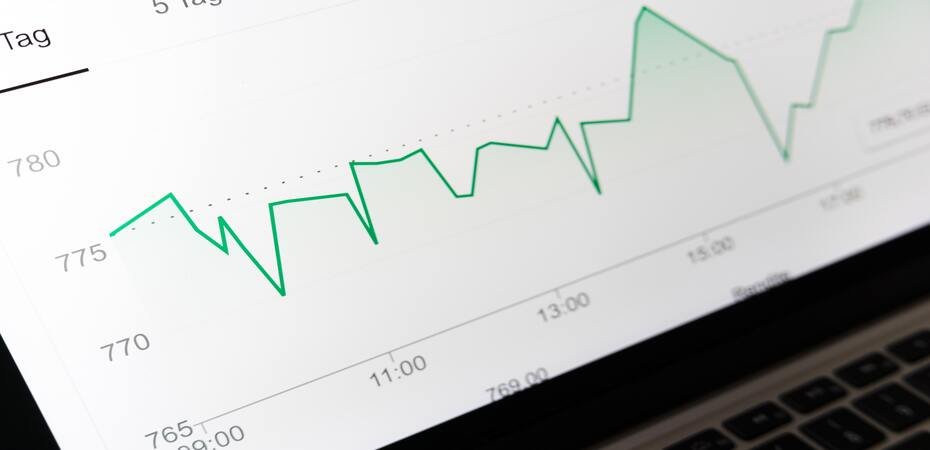In today’s digital age, businesses must have an online presence to compete and succeed in their respective industries. The key to building an online presence is search engine optimization (SEO), which can be achieved through various SEO metrics. SEO metrics help businesses understand how their website is performing and how they can improve it to increase visibility and traffic.
Table of Contents
In this article, we will discuss how to use SEO metrics for your marketing strategy and the benefits of doing so.
What Are SEO Metrics?
SEO metrics refer to the data and measurements used to evaluate the performance of a website in search engine results pages (SERPs). These metrics help businesses understand how well their website is optimized for search engines and how they can improve it to increase visibility, traffic, and conversions.
SEO metrics can include a wide range of data, including keyword rankings, organic traffic, backlinks, click-through rate (CTR), bounce rate, and more. By monitoring these metrics, businesses can identify areas that need improvement and make the necessary changes to improve their website’s overall performance in search engine results.
The use of SEO metrics is essential in today’s digital age, where businesses must have an online presence to compete and succeed in their respective industries. By understanding and utilizing SEO metrics, businesses can optimize their websites for search engines, improve their marketing strategy, and ultimately drive more traffic and conversions to their website.
Related: International SEO Strategy – 5 Tips to Optimize Your Website for Other Countries
Understanding SEO Metrics
SEO metrics are measurements used to evaluate the performance of a website in search engine results pages (SERPs). These metrics help businesses understand how their website is performing and identify areas that need improvement.
Some of the most important SEO metrics include:
1. Keyword Rankings
These are the positions in which a website appears in SERPs for specific keywords. Keyword rankings are essential as they help businesses understand how well their website is optimized for specific keywords and how much visibility they are getting for those keywords.
2. Organic Traffic
It is the number of visitors that come to a website through organic search results. Organic traffic is crucial for businesses as it helps them understand how many people are finding their website through search engines and how they can improve their website to increase organic traffic.
3. Backlinks
Backlinks are links from other websites that point to a website. These are essential as they help search engines understand the relevance and authority of a website. The more high-quality backlinks a website has, the higher its search engine rankings will be.
4. Click-Through Rate (CTR)
Click-through rate is the percentage of people who click on a website’s link in search engine results pages. CTR is crucial as it helps businesses understand how attractive their website’s title and meta description are to searchers.
5. Bounce Rate
Bounce rate is the percentage of visitors who leave a website after viewing only one page. A high bounce rate indicates that visitors are not finding what they are looking for on a website, and improvements need to be made to keep visitors engaged.
Also read: How to Start an SEO Agency in 5 Simple Steps?
Using SEO Metrics for Your Marketing Strategy
Once you understand the importance of SEO metrics, it’s time to use them to improve your marketing strategy.
Here are some ways you can use SEO metrics to improve your marketing strategy:
1. Identify Your Top Performing Keywords
Using keyword rankings, identify the keywords that are driving the most traffic to your website. Once you identify these keywords, you can optimize your website further for them to increase visibility and traffic.
2. Identify Low-Performing Keywords
Using keyword rankings, identify the keywords that are not driving enough traffic to your website. Once you identify these keywords, you can either optimize your website further for them or replace them with more effective keywords.
3. Improve Your Content Strategy
Using organic traffic and bounce rate metrics, you can identify the pages on your website that are performing well and those that need improvement. By improving the content on these pages, you can increase engagement, reduce bounce rates, and improve your website’s overall performance.
4. Build High-Quality Backlinks
Using backlink metrics, identify the websites that are linking to your website. Once you identify these websites, you can build relationships with them and request more high-quality backlinks to improve your website’s authority and search engine rankings.
5. Optimize Your Meta Titles and Descriptions
Using CTR metrics, identify the pages on your website with low click-through rates. Once you identify these pages, you can optimize the meta titles and descriptions to make them more attractive to searchers and increase click-through rates.
Related: The Ultimate Guide on the Benefits of Building Link for SEO
How Long Does It Take to See Results from Using SEO Metrics?
Depending on several factors, the time to see results from SEO metrics varies. So, these include current state of website SEO, industry competitiveness, and specific tactics.

In general, it can take several weeks or months to see significant improvements in SEO performance. However, some changes, such as optimizing meta titles and descriptions, can have a more immediate impact on click-through rates and traffic.
In addition, it’s important to keep in mind that SEO is an ongoing process, and results may not be immediate or consistent. Moreover, SEO is affected by various factors, including search engine algorithms, changes in the competitive landscape, and updates to the website itself.
Moreover, SEO results are cumulative, which means that the efforts made today can have a positive impact on the website’s SEO performance for months or even years to come.
In general, it’s recommended that businesses adopt a long-term approach to SEO, with a focus on creating high-quality content, building a strong backlink profile, and regularly monitoring and adjusting SEO metrics to improve website performance over time. With patience and persistence, businesses can see significant improvements in their website’s SEO performance and overall marketing strategy.
Also read: How to Optimize an Image for SEO?
Benefits of Using SEO Metrics for Your Marketing Strategy
You should watch this video before you jump into the benefits:
Using SEO metrics to improve your marketing strategy offers several benefits, including:
1. Increased Visibility
Optimize website with high-performing keywords and backlinks for visibility. Increased visibility leads to more traffic as well as conversions.
2. Improved Website Performance
By identifying areas of your website that need improvement and making the necessary changes, you can improve the overall performance of your website. This will result in better user experiences as well as higher engagement rates.
4. Better Targeting
To better target your audience, understand the keywords driving website traffic. Create resonating content resulting in more targeted traffic as well as higher conversion rates.
5. Competitive Advantage
To gain a competitive advantage, use SEO metrics to improve marketing strategy. It can increase market share and revenue compared to businesses not utilizing SEO fully.
Related: Tips for Meta Tags Optimization and Their Importance in SEO
Top 10 Free Tools to Monitor Website’s SEO Metrics
Here’re the free best tools that you can use to monitor website’s SEO metrics:
1. Google Analytics
A free tool that provides detailed information about website traffic, including the number of visitors, bounce rate, and conversion rates.
2. Google Search Console
By using a free tool, website owners can monitor and optimize their presence in Google search results. The tool provides keyword rankings as well as search performance data.
3. Bing Webmaster Tools
A free tool that provides insights into how Bing crawls and indexes websites, including keyword research as well as site performance metrics.
4. MozBar
A free Chrome extension that provides quick access to important SEO metrics, including domain authority, page authority, and link metrics.
5. SEMrush
A free version of the popular SEO tool that provides basic SEO metrics, including keyword rankings and backlink data.
6. Ahrefs
A free version of the popular SEO tool that provides basic SEO metrics, including backlink data and keyword rankings.
7. Yoast SEO
WordPress plugin optimizes content for search engines with feedback and analysis. Free to use.
8. SERPsim
A free tool that allows website owners to preview their website’s appearance in Google search results and optimize their meta titles and descriptions.
9. Answer the Public
Free tool provides insights on questions people ask for content strategy as well as keyword research.
10. Keyword Tool
Free tool provides keyword ideas for content strategy as well as better targeting.
Also read: The 8 SEO Best Tools of 2023
Conclusion
In today’s digital age, SEO is crucial for online businesses. By using SEO metrics, businesses can optimize their websites, increase traffic, and drive conversions. Furthermore, identifying keywords, improving content, building backlinks, optimizing meta data, and monitoring metrics like organic traffic and bounce rate can improve marketing strategy and gain a competitive advantage.
[article_faq]





